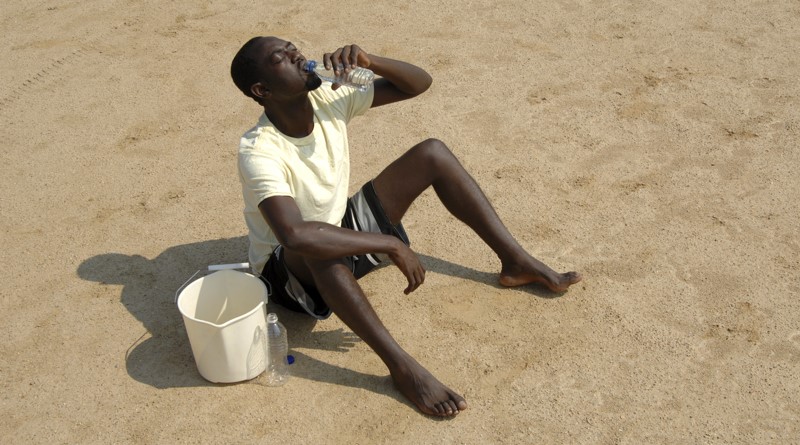Millions at risk as world seriously off-track to achieve SDG-6 on water, sanitation

The health of millions across the world is at risk if urgent action is not taken globally to achieve safe and sustainably managed water, sanitation and hygiene, a recent United Nations has warned, stating that the world is seriously off-track to achieve SDG-6 on water and sanitation for all by 2030.
The WHO and UN-Water’s Global Analysis and Assessment of Sanitation and Drinking-Water (GLAAS) 2022 report, launched in December, shows that acceleration is needed in many countries to achieve the UN Sustainable Development Goal (SDG) 6 – water and sanitation for all by 2030.
While 45 per cent of countries are on track to achieve their nationally defined drinking-water coverage targets, only 25 per cent of countries are on track to achieve their national sanitation targets. Less than a third of countries reported to have sufficient human resources required to carry out key drinking-water, sanitation and hygiene (WASH) functions.
The report details the latest status of WASH systems in more than 120 countries and is the largest data collection from the greatest number of countries to date.
While there has been an increase in WASH budgets in some countries, a large number – over 75 per cent – of countries reported insufficient funding to implement their WASH plans and strategies.
“We are facing an urgent crisis: poor access to safe drinking water, sanitation and hygiene claim millions of lives each year, while the increasing frequency and intensity of climate-related extreme weather events continue to hamper the delivery of safe WASH services,” said WHO Director-General Dr Tedros Adhanom Ghebreyesus.
“We call on governments and development partners to strengthen WASH systems and dramatically increase investment to extend access to safely managed drinking water and sanitation services to all by 2030, beginning with the most vulnerable.”
The GLAAS report also shows that most WASH policies and plans do not address risks of climate change to WASH services, nor the climate resilience of WASH technologies and management systems. Just over two thirds of countries have measures in WASH policies to reach populations disproportionately affected by climate change. However, only about one third monitor progress or allocate explicit funding to these populations.
“The world is seriously off-track to achieve SDG-6 on water and sanitation for all, by 2030. This leaves billions of people dangerously exposed to infectious diseases, especially in the aftermath of disasters, including climate related events,” said UN-Water Chair and International Labour Organization Director General Gilbert F Houngbo.
“The new data from GLAAS will inform the voluntary commitments the international community will make at the UN 2023 Water Conference in March, helping us target the most vulnerable communities and solve the global water and sanitation crisis.”
Dire consequences of climate change and extreme weather events bring more attention to the issues, underlining an urgent need for a whole-of-society approach and global cooperation to act together. The GLAAS 2022 report shows that countries making progress demonstrated high level of political commitment and investments in improving safe WASH systems, said an official statement.
With the GLAAS 2022 report, WHO and UN-Water call on all governments and stakeholders to scale up support for WASH service delivery, through strengthened governance, financing, monitoring, regulation and capacity development.
The report sets the scene for action ahead of a historic water and sanitation meeting planned in 2023. For the first time in 50 years, the global community – through the United Nations – will review progress and make firm commitments to renew action on water and sanitation with global leaders.
The report notes that increasing frequency and intensity of extreme weather events obstruct the sustainable delivery of WASH services. All climate hazards affect the use of WASH facilities such as by forcing people to use unsafe water resources or to use unsafe sanitation facilities. resorting to open defecation 71 per cent of countries report using climate change preparedness approaches in national planning, and yet only 20 per cent report implementing climate change preparedness approaches at sufficient scale for local risk assessment and appropriate WASH management.



